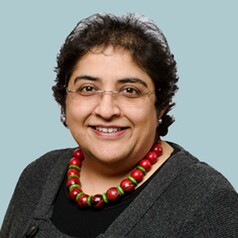
I. Sadaf Farooqi
Wellcome Principal Research Fellow and Professor of Metabolism and Medicine, University of Cambridge
My team studies the molecular and physiological pathways involved in the regulation of human appetite and body weight and their disruption in obesity. Some of the molecular pathways involved in regulating weight also regulate blood pressure and lipid metabolism, and affect an individual's risk of cardiovascular diseases.
One of the links between obesity and cardiovascular disease is leptin. We have identified mutations in leptin gene using candidate gene approach in patients with severe, early onset obesity, and have demonstrated that leptin contributes to hypertension in obese individuals. These results suggest that pharmacological approaches that modulate leptin’s effects on cells could represent a useful therapeutic strategy for the treatment of obesity-associated hypertension and might help prevent a subset of obesity-associated cardiovascular disease.
Less ![]()
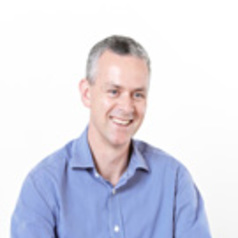
Iain Black
Associate Professor in Marketing, Heriot-Watt University
I joined Heriot Watt as a Reader from the University of Edinburgh and before that held the post of senior lecturer at University of Sydney. My main interests revolve around sustainability. I am the Sustainable Consumption theme leader for the International Sustainable Development Research Society and my research focusses on anti-consumption, consumer’s responses to scarcity and how consumers dispose of goods. This has led to policy work exploring ways to rebalance dysfunctional relationships with materialistic consumption. http://allofusfirst.org/library/from-i-to-we-changing-the-narrative-in-scotlands-relationship-with-consumption/
Starting with an interest in how the Scottish Green party were influencing the Scottish Independence referendum, I have spent the last 4 years studying volunteer participation in this event and the marketing practices deployed, including the use of Hope vs Fear appeals. As part of this, I conducted what is the most comprehensive survey of the Yes volunteers to date, the findings of which, published by CommonWeal “available via http://allofusfirst.org/library/the-yes-volunteers-capturing-the-biggest-grassroots-campaign-in-scotlands-history
This work has been widely reported in new media outlets such as Bella Caledonia, Common Space and Independence live and the Scottish Independence podcast. It is also making its way through academic journal review processes.
Less ![]()
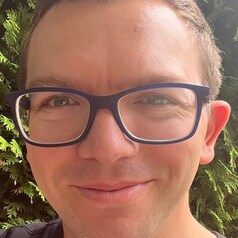
Iain Farquharson
Lecturer in Global Challenges – Security Pathway Lead, Brunel University London
I completed my PhD in Military History at Brunel in 2021. Prior to this I completed an MA in History at the University of Exeter in 2010 and my BA (hons.) in History at Brunel in 2009. My research examines the reform of officer education in the British Army between 1919 and 1939. I am also an Associate Fellow of the Royal Historical Society.
Between 2018-2020 and 2021-22, I taught as an adjunct lecturer on Brunel's BA International History and BA Military and International History courses. From October 2021 I taught the Security Pathway on the BASc Global Challenges course, before becoming the Pathway Lead from September 2022.
My research interests focus on military history in the first half of the Twentieth Century. My current work focuses on the development and change of education and training within the British and Imperial armies, primarily through the study of officer education at cadet colleges and staff colleges.
In addition I am undertaking research into the application of multi-disciplinary (primarily Sociological) theories of culture and institutional innovation to the study of military culture and how militaries respond to and assimilate reforms to fundimental aspects of their cultural norms.
Less ![]()
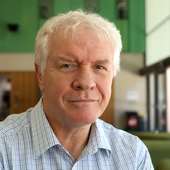
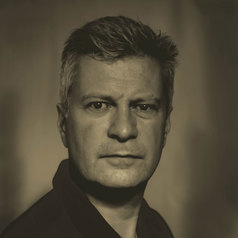
Iain Macdonald
My research interests are centred on how heritage (traditional handcrafts) and digital practices fuse to form hybrid methods in moving image design. Practice-led research into my own moving image work formed the core of my doctorate research. My work in education has also informed my pedagogic research into internationalisation, the moving image and lens-based media, forming an argument for future directions in art and design practice.
Less ![]()
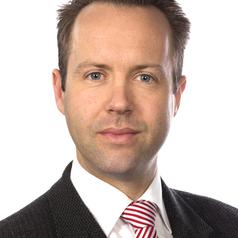
Iain Perkes
Senior Lecturer, Child and Adolescent Psychiatry, UNSW Sydney
I am a Senior Lecturer at the UNSW, Sydney. I work as a child and adolescent psychiatrist in Sydney Children's Hospital Network where I lead the Kids Mental Health Research group and the clinical service for obsessive-compulsive disorder. I am an Associate Editor for the Australian and New Zealand Journal of Psychiatry. I am an Honorary Scientist with Neuroscience Research Australia and a Research Fellow at the Black Dog Institute. I contribute as a Governing Board member to NSW Health Higher Education Branch. I co-founded a national research collective - OCD BOUNCE - ocd.org.au
Less ![]()
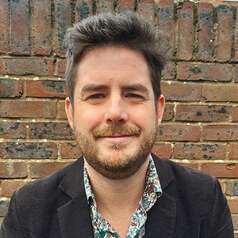
Iain Reid
Course Leader, MSc Cybercrime, University of Portsmouth
I am a Senior Lecturer in Cybercrime in the School of Criminology and Criminal Justice at the University of Portsmouth. I completed my PhD in Psychology at the University of Lincoln where my work focused on developing a holistic, risk-based and future focused approach to deception. I conducted my post-doctoral research at the University of Malta, and in the School of Computing at the University of Portsmouth, with my later research focusing on human cyber security risk across working age populations.
My current research focuses on social and behavioural approaches to cybercrime and security. I am currently exploring perceptions of security and risk amongst software developers, innovative approaches to cyber deception for defence, and digital footprints and emissions.
Less ![]()
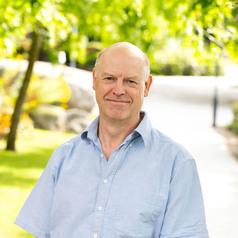
Iain Richards
Senior Lecturer, Animal Life, University of Central Lancashire
Iain is an innovative, enquiring veterinarian who combines 30 years’ clinical experience of all major species into a wider understanding of how ecology and ecosystem health affect animal and human epidemiology.
Iain will be involved in the creation of and teaching within the new veterinary school, bringing his wide experience of clinical practice and business skills into the syllabus
Iain has spent most of his working life as a mixed species practitioner, mostly in the north of England. He has progressed from assistant to sole owner, partner and finally as director of a two-site multi vet practice. During that time he worked intensively in the Foot and Mouth outbreak of 2001 gaining insight into disease control at an epidemic level. His practice was a founding member of XLVets UK and Iain later served on the board of Directors.
From 2011, he left clinical practice and combined househusband and childcare duties with occasional locum work, that included stints on the Isle of Mull and the island of St Kitts. From 2013-2106 he studied for and gained a Masters in Conservation Medicine through Edinburgh University, which rekindled a longstanding interest in ecology. This now provides his major area of interest in how the ecology of parasites needs to be understood in order to maintain sustainable control.
Less ![]()
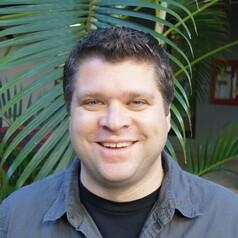
Iain R. Caldwell
Adjunct Senior Research Fellow, James Cook University
Iain grew up in Canada where he completed his BSc (Mount Allison University), MSc (Dalhousie University), and a PhD focused on “Habitat use, movement, and vulnerability of sedentary fishes in a dynamic world” (The University of British Columbia). He then spent several years as a postdoctoral researcher in the United States, associated with the Hawaii Institute of Marine Biology (University of Hawaii), University of California Santa Barbara, and Stanford University. Iain then joined the ARC Centre of Excellence for Coral Reef Studies at James Cook University as a Quantitative Social-Ecological Research Associate. Iain is affiliated with James Cook University as an Adjunct Senior Research Fellow and is also the Lead Analyst for MERMAID (datamermaid.org) at the Wildlife Conservation Society.
Iain is broadly interested in why fish and other marine organisms end up where they do and what that can mean for their future, and the future of people that depend on those organisms, given changes in global climate and increasing human impacts to many of the world’s coastal ecosystems. Trained as a quantitative ecologist and interested in intersections between ecology and social sciences, Iain uses a variety of analytical approaches to (1) understand what drives distribution and movement of organisms across time and space, (2) predict how changes in those drivers could impact biodiversity and food security, and (3) improve management and conservation strategies to minimize negative effects on ecosystems and the people that depend on them. As the Lead Analyst at MERMAID, Iain helps turn coral reef data into useful stories and meaningful information that can guide evidence-based decision making.
Less ![]()
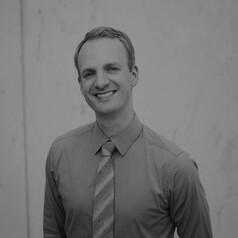
Ian Afflerbach
Associate Professor of American Literature, University of North Georgia
I have 10 years of experience teaching, speaking, and writing on American cultural politics. Whatever the venue, I try to get my audience to think about the places where our major concerns as citizens and as readers overlap – whether those concerns are "color blind" racism, debates over reproductive rights, or presidential character. We can learn about the big questions in our lives through literature, and learn about literature by spending time understanding political and philosophical writers. My first book, "Making Liberalism New: American Intellectuals, Modern Literature, and the Rewriting of a Political Tradition," was recently published by Johns Hopkins UP in 2021, and illustrates my methods as a scholar. I'm currently writing a book entitled "Sellouts! The Story of an American Insult." My research has also appeared in flagship journals for literary history (PMLA, English Literary History), American Literature (Modern Fiction Studies, Studies in the Novel), and periodical studies (American Periodicals, Amerikastudien).
Before arriving at the University of North Georgia, I taught courses in digital archival work and science fiction periodicals at Georgia Tech, seminars in critical theory at the Gutenberg University in Mainz, Germany, and survey courses in Anglophone literature at UC Davis. At UNG, I regularly teach our African American Literature course, as well as our Introduction to Literary Studies, and our survey of modern American Literature.
Less ![]()
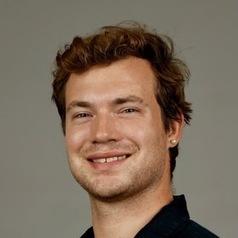
Ian Anderson
Ph.D. Student in Social Psychology, USC Dornsife College of Letters, Arts and Sciences
I study how beliefs, decisions, and behaviors are influenced by social media and technology, primarily through the lens of habits.
I am currently attending USC to acquire my PhD in Social Psychology, with a focus on media habits. I research the impact of social media on human behavior, while also seeking to understand how technology shapes the spread and adoption of behaviors and ideas across individuals and/or groups.
My research background includes a research masters degree from INSEAD in marketing science with a focus on consumer behavior. My expertise in Social Media comes from nearly 5 years of dedicated research and work on digital strategy with Temin and Company in New York City (some while part-time as a student at Swarthmore College) as well as advertising experience at Sony Pictures Home Entertainment and Research Associate work at Columbia University's business school. I graduated from Swarthmore College in 2013, where I completed an Honors Major in Political Science and Major/Honors Minor in Economics. This included extensive coursework in mathematics, philosophy, psychology, political and economic theory, and english literature.
Less ![]()
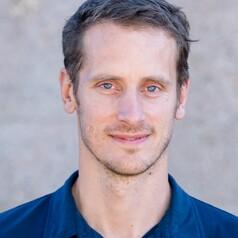
Ian Ashton
Senior Lecturer in Offshore Technology, University of Exeter
Ian is a physical oceanographer, and wave analyst with expertise in wave measurement technology, satellite earth observation, air-sea gas exchange and marine renewable energy.
Accurate measurements of waves and currents are critical when operating offshore and in coastal locations. Combining offshore, in-situ field measurements with satellite data and innovative analysis tools, Ians research is aimed at improving the information available about the physical oceanographic conditions to create better operational and design procedures.
Ian's PhD looked into the spatial properties of ocean waves and subsequent research has covered the spatial variability of waves for marine energy, the accuracy of wave and current monitoring and detailed procedures for wave assessment. He previously worked as principal researcher for the FabTest marine energy test site situated in Falmouth Bay. This included research to develop innovative wave and current monitoring in response to requirements from developers of operational wave energy projects.
Less ![]()
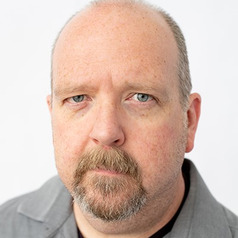
Ian Brodie
Professor of Folklore, Cape Breton University
Ian Brodie is folklorist, and author of "A Vulgar Art: A New Approach to Stand-up Comedy." He researches the intersection of folk culture and mass media, ranging from local radio song contests to the supernatural in children’s television. Ian currently serves as the President-Elect of both the Folklore Studies Association of Canada and the International Society for Contemporary Legend Research.
Less ![]()
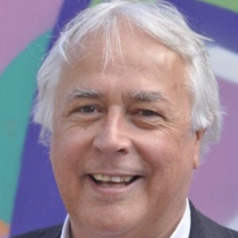
Ian Cole
Emeritus Professor of Housing Studies, Sheffield Hallam University
Ian Cole is Emeritus Professor of Housing Studies at the Centre for Regional Economic and Social Research at Sheffield Hallam University. He has extensive experience of research, teaching and writing in the field of housing and regeneration policy and practice. He has directed major research projects for the Department of Work and Pensions, Department for Communities and Local Government (DCLG), Joseph Rowntree Foundation (JRF), regional bodies, local authorities and housing associations.
Professor Cole has advised House of Commons Select Committee inquiries on the impact of regeneration, low housing demand, social housing regulation, land value capture and housing market renewal. He chaired a Ministerial Advisory Panel on the future of regulation in the social housing sector.
Less ![]()
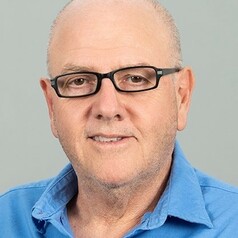
Ian Dadour
Adjunct professor, Murdoch University
Professor Ian Dadour completed his Bachelor of Science at the University of Western Australia and went on to complete a PhD in Zoology specialising in acoustics and population genetics of bushcrickets. Since gaining his PhD, he has researched in several disciplines including insect behaviour and evolutionary biology, insect ecology, applied entomology and forensic entomology.
Following a series of postdoctoral fellowships in Germany on insect mating systems and then a University of Adelaide Postdoctoral Fellowship at the Waite Institute on habitat selection by butterflies, he began work in 1989 at the Western Australian Department of Agriculture. As well as being the Officer-in-Charge of the Dung Beetle/ Bush Fly Programme, this was the beginning of his forensic entomology career. In 1999 Ian secured an Australian Research Council grant at the University of Western Australia to investigate oviposition of insects on decomposing corpses.
In 2008 Ian was promoted to Professor, a culmination of establishing the Centre for Forensic Science in 2000 and substantive and outstanding contributions nationally and internationally in each of the areas of research, teaching and service. During this period Ian sustained a high level of research and scholarship for over a decade and has established himself as a leading scholar in the field of forensic entomology. This is documented through a portfolio of peer-reviewed journal and industry publications, a succession of ARC and other research and consultancy project grants, attracting and successfully supervising many postgraduate thesis candidates and invitations to teach law enforcement agencies globally. As a consequence of research conducted at the University of Tennessee’s (UT) Anthropological Facility in Knoxville, Ian was part of the teaching faculty with the FBI, and each year since 2003 until 2014 he has been an instructor for the FBI Evidence Response Team in the Human Remains Recovery School. Ian is also affiliated with the new Anthropological Facility at Oakridge (TN) operated by the Forensic Academy (UT). As well he has collaboration with the largest and more recently established Forensic Anthropology Research Facility at Texas State University at San Marcos. Ian became a Professor with The Boston University Medical School in 2015 and taught a unit of forensic entomology into their Master of Forensic Anthropology Course as well as supervising Master degree students. Ian is a Visiting Professor at Lincoln University, UK and prior to Brexit he was teaching annually into the Erasmus Mundus (EM) Master of Forensic Science Course. He continues to supervise Master students in AUS, UK and USA. While Director of the Centre of Forensic Science at UWA in 2015 over 450 students gained Graduate Certificates/Diplomas, 67 students were awarded Master degrees and 38 students received either a PhD or combined Master/PhD degrees. Ian continues to be the Western Australian Honorary Forensic Entomologist and has appeared as an expert witness in this discipline in courts in Western Australia, Northern Territory, Queensland and New South Wales. Currently, Ian is Head of Research and Education with Source Certain (a forensic/provenance company concerned with supply chain integrity of food and minerals).
Less ![]()
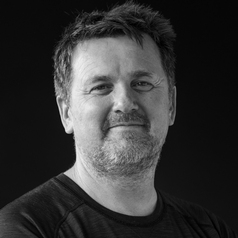
Ian Goodwin1
Associate Professor in Media and Creative Communications, Massey University
Ian Goodwin is an Associate Professor in the School of Humanities, Media and Creative Communication at Massey University, Albany, Auckland New Zealand.
Less ![]()
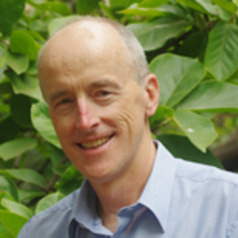
Ian Gordon
Professor of Statistics and Director, Statistical Consulting Centre, The University of Melbourne
Ian Gordon is a Professor of Statistics in the School of Mathematics and Statistics at the University of Melbourne. His main responsibility is as Director of the Statistical Consulting Centre. Ian has over 40 years of experience in applied statistical work, and a particular interest in communicating statistical ideas effectively in all he does. Ian’s work reflects his interest in the use of statistical methods to promote health and well-being in society, and to promote justice, and there has been an emphasis in his consulting on medical and epidemiological research, and, in his expert witness work, on cases where disadvantaged or vulnerable people were seeking justice. Ian is currently President of the Statistical Society of Australia.
Less ![]()
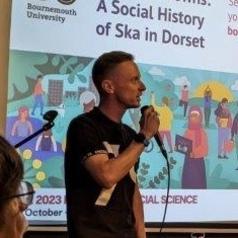
Ian Gwinn
Senior Lecturer in Politics, Bournemouth University
My PhD focused on the inner life of cultural and intellectual activism in Britain and West Germany since the late-1960s. I have a range of research interests, both historical and contemporary, related to cultural and extra-institutional forms of politics, in particular social movements and civil society, youth culture and subculture, and working-class, socialist, and feminist organisations. I am a trained oral historian and have used recorded testimony and memory extensively in my work, in order to explore both individual experience and large-scale processes of historical change.
I am currently developing a project entitled 'Two Tone Towns', a study of the impact of 2-Tone and ska in rural and small-town England, which explores how their meaning was taken up and re-appropriated by youth subcultures in places and regions very different to the urban centres from which the movement sprang.
Less ![]()
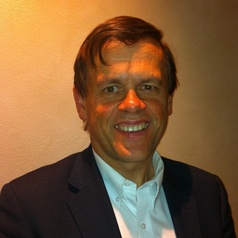
Ian Haines
Adjunct Clinical Associate Professor, AMREP Department of Medicine, Alfred Hospital, Melbourne & Senior Medical Oncologist and Palliative Care Physician, Melbourne Oncology Group, Cabrini Haematology and Oncology Centre, Wattletree Road, Malvern, Monash University
*Medical Oncology Fellowship- Alfred Hospital, Melbourne 1983-4
*Clinical and Research Fellowship in Medical Oncology, Memorial Sloan-Kettering Cancer Centre, NY, NY 1985-7. (The first Australian to be accepted into this program)
*Palliative Care Physician, RGH, Victoria, 1987-90 (The first such position in Victoria)
*Established and ran first formal undergraduate teaching courses in palliative care at Melbourne University in 1987-90 and Monash University 1991-2004. Details of the Monash course were seen as novel and innovative and were published as a fast-track publication in ‘Psycho-oncology’ in 1994.
*Helped draw up the guidelines for the establishment of first free-standing, dedicated palliative care unit (Fairfield House) at Alfred Hospital Melbourne in 1988.
*Commenced and established the inpatient and day hospital medical oncology service at Cabrini Hospital, Melbourne in 1987, now one of the largest in Australasia.
*Helped to establish the first dedicated and free-standing palliative care unit in the private sector in Australia at Cabrini Hospital, Prahran. This 22 bed unit opened in Nov 1999.
*Helped establish Cabrini’s own dedicated 24-hour domiciliary palliative care nursing service in 1999.
*Visiting Medical Oncologist, Alfred Hospital, Melbourne 1987-2011
*Involved in many oncology clinical trials at Alfred Hospital and Cabrini Hospital.
*Regular teaching of Monash undergraduate medical students in PBL tasks and in private office at Cabrini Hospital, a 550 bed, private not-for-profit university-affiliated acute care teaching hospital.
*Supervisor of Advanced trainees in Medical Oncology/Palliative Medicine
*Various publications on novel therapies; evidence-based clinical cancer research; palliative care; PSA screening for, and treatment of, early stage prostate cancer; alternative cancer therapies; and relationships between physicians and industry.
Less ![]()

Ian Hohm
Graduate Student of Psychology, University of British Columbia
My research draws on an evolutionary psychology approach to investigate how deep-seated motivations influence behaviour in the context of particular threats and opportunities. For example, in one current project, I am applying error management theory to examine evolved biases in person-perception, such as attributions about the internal (psychological) and external (physical) characteristics of people who pose specific threats. In another, I am exploring how people may have developed an adaptive followership psychology for selecting leaders whose qualities were historically best-suited to solve different group challenges. In a third line of work, I am examining how people adapt to seasonal changes that cyclically alter natural ecologies, physiological processes, and social interactions to generate annual patterns of human behaviour (e.g., seasonal changes in short-term vs. long-term mating).
Less ![]()
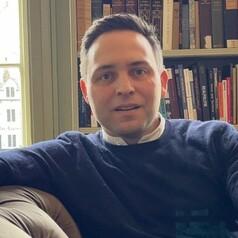
Ian Klinke
Associate professor in human geography, University of Oxford
My research explores the history of geopolitics. My first book, 'Cryptic Concrete' (2018, Wiley), examines West Germany's military landscapes, designed in the 1950s and 60s to protect and take life in nuclear war. 'Life, earth, colony' (University of Michigan Press, 2023) surveys the life, ideas and reception of Friedrich Ratzel (1844-1904), the controversial theorist of living space.
Less ![]()
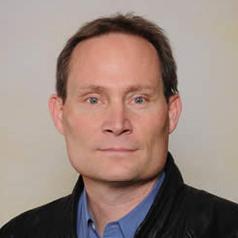
Ian Kuijt
Professor of Anthropology, University of Notre Dame
Ian Kuijt is Professor of Anthropology at the University of Notre Dame. He specializes in the social geography of village life within small-scale prehistoric and historic communities. Drawing upon ethnography, social theory, and archaeology, his scholarship is focused primarily on emerging social inequality, identity, and the construction of community through ritual and economic means.
Professor Kuijt is the author or co-editor of seven books, including Transformation by Fire: The Archaeology of Cremation in Cultural Context (2014); People of the Middle Fraser Canyon: An Archaeological History (2012); Macroevolution in Human Prehistory (2009); and Life in Neolithic Farming Communities: Social Organization, Identity, and Differentiation (2000). His most recent co-authored book, Island Places, Island Times (2015), employs photographic recognition software to play 23 linked two-minute films designed, filmed, and produced by Wiliam Donaruma (Notre Dame, Film Television and Theater) and Kuijt. He has written over one hundred scholarly articles, including publications in Proceedings of the National Academy of Sciences, Current Anthropology, American Antiquity, The Journal of Economic Anthropology, and The Journal of Archaeological Science. He serves on a number of editorial boards, including Antiquity and Paléorient.
Professor Kuijt’s research has been supported by major fellowships and grants from the National Science Foundation, the Social Sciences and Humanities Research Council of Canada, the University of Notre Dame Institute for Scholarship in the Liberal Arts, the Canadian Federation for the Humanities and Social Sciences, the Wenner Gren Foundation for Anthropological Research, the Amerind Foundation, the John Tynan Foundation, the Ministry of Foreign Affairs and Cooperation-Spanish Agency for International Cooperation, Spain, the John Templeton Foundation, the British Academy, the Mellon Foundation, and the Sigma Xi Foundation. In 2005 he was awarded a National Endowment for the Humanities fellowship, and in 2009 he served as the Naughton Distinguished Visiting Professor, Keough-Naughton Institute for Irish Studies.
Less ![]()
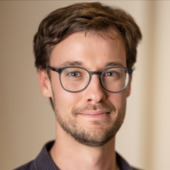
Ian Lovering
Lecturer in International Relations, Te Herenga Waka — Victoria University of Wellington
Less ![]()
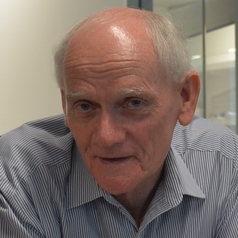
Ian Mackinnon
Professor and Director, Centre for Clean Energy Technologies and Practices, Queensland University of Technology
Prof. Mackinnon obtained his BSc (Hons) and PhD degrees at James Cook University, Australia and is the Founder and former Executive Director of the Institute for Future Environments at QUT. Prior to his roles at QUT, Ian was Executive Director for Engineering and Environmental Sciences at the Australian Research Council and directed the Linkage Projects Scheme; a programme providing strong support for outcome-focused, collaborative research between universities and industry. He also managed the portfolios of the Physics, Chemistry and Geosciences and the Maths, Information and Computing Sciences panels for significant periods. Prof Mackinnon has more than ten years' experience in technology transfer including direct involvement with two start-up companies producing environmentally friendly materials for the chemicals and wastewater-treatment industries. He currently leads a hybrid renewable energy hydrogen project co-funded by ARENA, industry, state government and four universities. Prof Mackinnon is a member of the Ministerial Energy Council and of the Hydrogen Task Force for the Queensland Government. He has held appointments at Arizona State University, NASA Johnson Space Centre, The University of New Mexico in the USA and at The University of Queensland. Prof Mackinnon has served in advisory roles for five national and international centres in the environmental, minerals and energy sectors.
Less ![]()
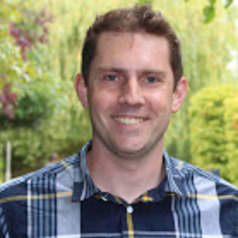
Ian Mahoney
Senior Lecturer in Criminology, Nottingham Trent University
Dr Ian Mahoney is a Senior Lecturer in Criminology and Deputy Director of the Centre for Crime, Offending, Prevention and Engagement at Nottingham Trent University. His research adopts a cultural criminological lens and is currently focused around understanding and addressing the harms and impacts of crime and contact with the justice system across diverse groups including minoritised communities, women with convictions, and individuals convicted of sexual offences. He has recently co-edited a collection exploring Holistic Responses to Reducing Reoffending alongside Rahmanara Chowdhury which offers a range of theoretical and conceptual ideas as well as practical examples providing detailed insight into holistic opportunities for promoting desistance, reducing reoffending, and supporting (re)settlement and (re)integration. He has recently completed a Nuffield Foundation funded study on Transformative Justice, Women with Convictions and Uniting Communities.
Less ![]()
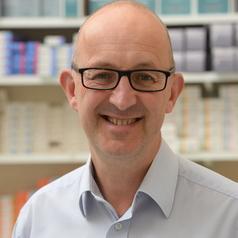
Ian Maidment
Professor in Clinical Pharmacy, Aston University
Dr Maidment is an experienced academic and clinical pharmacist. Prior to moving to Aston he spent 20 years in practice within community pharmacy, the acute sector and mental health/dementia. He has been chief pharmacist in two trusts and led R&D in another trust. In addition to his PhD, he has two diplomas (in management and mental health pharmacy), a masters in health services research and a teaching certificate.
He has published over 120 papers in peer-reviewed journals and he led six NIHR/UKRI grants. He has been working clinically and as a researcher in dementia for over 25 years.
Less ![]()
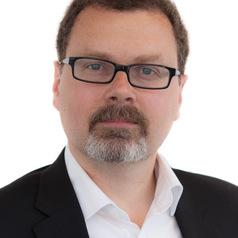
Ian Marsh
Professor of Finance, City, University of London
Ian Marsh is Professor of Finance at Bayes Business School, City, University of London. He has been at Bayes since 1998, during which time he has directed the suite of undergraduate finance degrees, the flagship MSc in Finance, and the Finance PhD program. Until recently, he was the Head of the Faculty of Finance.
His research interests centre on the foreign exchange market and asset pricing, and he has published in leading finance journals including the Journal of Finance, Journal of Financial Economics and Journal of Financial and Quantitative Analysis. However, his research interests are broad and he has also written papers on the impact of gender in the market for financial advice, economic conditions in the inter-war period and economic productivity.
Beside his time in academia, Ian has worked in the City of London as an international banker and financial market economist, for the IMF and at the Bank of England.
Less ![]()
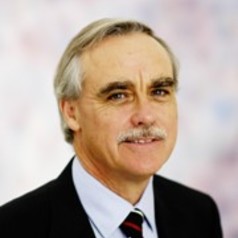
Ian Martin McDonald
Emeritus Professor, University of Melbourne
Ian McDonald graduated with a PhD from Simon Fraser University in 1974. His fields of study are Behavioural Economics and Macroeconomics. Ian has been at the University of Melbourne since 1974. He was promoted to Senior Lecturer in 1981, Reader in 1986 and Professor in 1990. In 2012 he was appointed emeritus professor. He has held visiting positions at the Massachusetts Institute of Technology, Monash University, Nanyang University, Oxford University and Queen’s University. Ian has held a number of administrative positions including Head of the Department of Economics, University of Melbourne 1993 to 1996, Chair of the Teaching and Learning Quality Assurance Committee, University of Melbourne, 1999 to 2000 and Deputy Dean, Faculty of Economics and Commerce, University of Melbourne, 1999-2002 and 2005. Ian is an Editor of the Australian Economic Review and a Fellow of the Academy of Social Sciences, Australia.
Less ![]()

Ian McAuley
Ian McAuley's research and teaching interests are in the fields of public sector management and public policy.
He has qualifications in Engineering (BE) and Management (Dip Bus Mgt) from the University of Adelaide and public administration (MPA) from the John F Kennedy School of Government, Harvard University.
Less ![]()
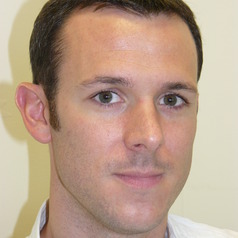
Ian McHale
Professor of Sports Analytics, University of Salford
Ian gained a BSc (Hons) in Mathematical Physics from the University of Liverpool before studying for a PhD at the University of Manchester in Extreme Value Statistics. After a short time as an Investment Analyst, Ian returned to academia at the University of Salford. Ian is now Reader in Business Analytics and Director of the Centre for Sports Business Research. He is also Chair of the Statistics in Sport Section of the Royal Statistical Society. His research interests include statistics in sport and the analysis of gambling markets and various gambling issues.
Ian has been involved in several high-profile consultancy projects with, for example, the General Medical Council, the Press Association, Football DataCo, the Premier League, and various bookmakers. He was co-creator of the EA SPORTS Player Performance Indicator, the official player rating system of the Barclays Premier League.
Less ![]()
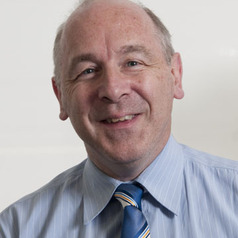
Ian Olver
Ian Olver graduated from the University of Melbourne in 1976, completed an MD in 1991 on clinical trial methodology and a PhD from Monash University in bioethics in 1997. He trained in medical oncology at Peter MacCallum Cancer Institute, the Alfred Hospital in Melbourne and the University of Maryland Cancer Centre in Baltimore. After serving as Clinical Director, Royal Adelaide Hospital Cancer Centre, where he currently holds an emeritus appointment, and becoming the first Cancer Council SA Professor of Cancer Care at the University of Adelaide, in May 2006 he was appointed CEO, Cancer Council Australia and received their Gold Medal in 2014. He is an Associate Professor in the Centre for Values Ethics and the Law in Medicine at the University of Sydney. In 2015 he accepted an appointment as Professor of Translational Cancer Research and Director of Sansom institute for Health Research and now also Dean of Research Strategy in the Division of Health Sciences, University of South Australia. He currently chairs the Australian Health Ethics Committee of the NH&MRC and serves on NH&MRC Council. He has published over 260 articles in journals, 19 book chapters has written 4 books and edited three others. In 2008 he was awarded the Cancer Achievement Award by the Medical Oncology Group of Australia and in 2011 received an AM for services to oncology.
Less ![]()
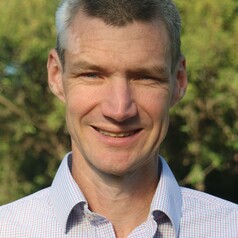
Ian Peake
Digital Solutions Architect, RMIT University
Dr Ian Peake is a digital solutions architect in RMIT University's STEM Centre for Digital Innovation. Ian is passionate about showcasing next-generation technologies for teaching such as motion simulation, virtual and mixed reality, robotics, visualization and cloud services. After receiving his PhD in Software Engineering in 2003 at the University of Queensland, Ian was a research fellow at Monash University then RMIT where he created the Virtual Experiences Laboratory (youtube.com/@vxlabrmit) and now leads project teams of Computing students developing demonstrators.
Less ![]()
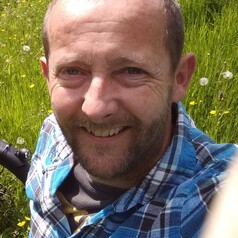
Ian Philips
Senior Research Fellow, Institute for Transport Studies, University of Leeds
I'm a geographer by training. My research interests cover geographical analysis of socially equitable sustainable transport planning. My skills include a wide range of approaches to spatial data analysis visualisation, simulation and methods associated with Geographic Information Science (GIS) and geocomputation and geographic data science. Though I work principally with spatial and other quantitative data I also work with colleagues on mixed methods research projects. I have conducted work on capability to make journeys by walking and cycling during fuel disruption, modelled the carbon reduction capability of e-bikes and leads a project to understand more about the carbon reduction potential of e-micromobility.
Less ![]()
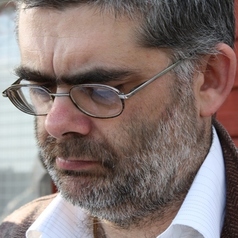
Ian Preston
Professor in the Department of Economics, UCL
Ian Preston is Professor in the Department of Economics at University College London. He received his D.Phil in Economics from Nuffield College, Oxford in 1989. He is a Research Fellow of the Institute for Fiscal Studies and is Deputy Research Director of the Centre for Research and Analysis of Migration at UCL. He has been the Editor of the Economic Journal Conference Volume and the Editor of Fiscal Studies.
His main research interests are in applied microeconomics, particularly consumer demand, consumption and savings, income distribution, taxation, public spending and child costs, political economy and the economics of sport. His interests in the economics of migration concern especially the impact on receiving countries and the nature of attitudes towards immigrants.
Less ![]()
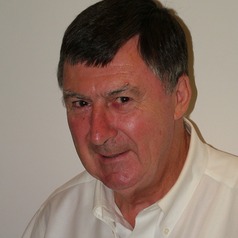
Ian Rae
Honorary Professorial Fellow, School of Chemistry, The University of Melbourne
Ian Rae is an Honorary Professorial Fellow in the School of Chemistry at the University of Melbourne. He has a PhD from the Australian National University and many years of experience with university research, reviews, and industry consulting.
Since leaving the laboratory Ian has served as an adviser to government agencies in Australia and to the United Nations Environment Program. He writes about the history of chemistry, chemical technology, and chemists and is co-editor of the Australian Academy of Science journal Historical Records of Australian Science.
He was previously the Dean of Science at Monash University and is a former President of the Royal Australian Chemical Institute.
Less ![]()
- Market Data













